The Colonnade: Relational, Restorative Relief
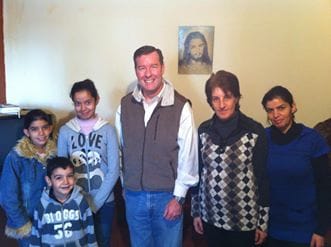
Near Tyre, Lebanon, 13 December 2014—Gunfire woke Maria and Rita up at 5am. The middle school sisters looked out their window and down the valley: the Syrian government’s checkpoint was ablaze. Their father, Thomas, and mother, Michelle, soon gathered them and their younger brother Sarkis. They fled Maaloula immediately. They were not going to wait and see if the Syrian Army could protect them against one of the terrorist factions invading their hometown.
I met these special folks from a special place, earlier today (except for Thomas, who had just got a 3-day job and was working on Saturday). You see, Maaloula is a Christian village north of Damascus that still speaks the language of Jesus, that is, Aramaic. One of the most powerful experiences of my life was visiting the Church of St. Sarkis there, which dates to 172 A.D., and hearing the Lord’s Prayer said in Aramaic.
Eighteen months since they fled their home, this middle class family is finding its way, trying to provide food, and education for their daughters (whose previous Syrian curriculum is not compatible with the Lebanese curriculum, so they have to go to private school if they go at all). They are among the more fortunate.
I also met with a Muslim family from Hama, Syria, today. (Hama is also dear to me, as we partnered with an all women’s Muslim college there to talk about how we respect each other’s faith.) This family fled nine months ago—paying $500 to a taxi driver who could negotiate through the multiple check points of all the factions fighting each other—and now lives in an orange grove by the sea in southern Lebanon.
With no electricity and no water, they can live in a tent there for free, if they work for free, picking oranges. When the wife fell one day picking oranges, her subsequent hospital visit also revealed that she had a severe form of diabetes (which requires daily medicine). A neighboring Hama family in the orange grove has two children with disability. These are real costs not easily covered.
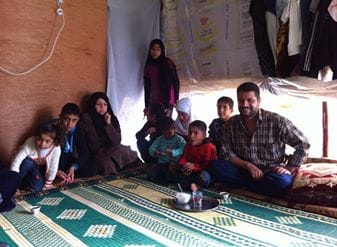
Yesterday I was in the Bekaa Valley near the Syrian border. I met Abu Hamed at the Deir Zanoun camp, which has 185 tents and 3000 people. He too was a middle class Syrian. But he had to flee his chicken farm and land near Aleppo with his 15-member family. He has had two children die since coming to Lebanon.
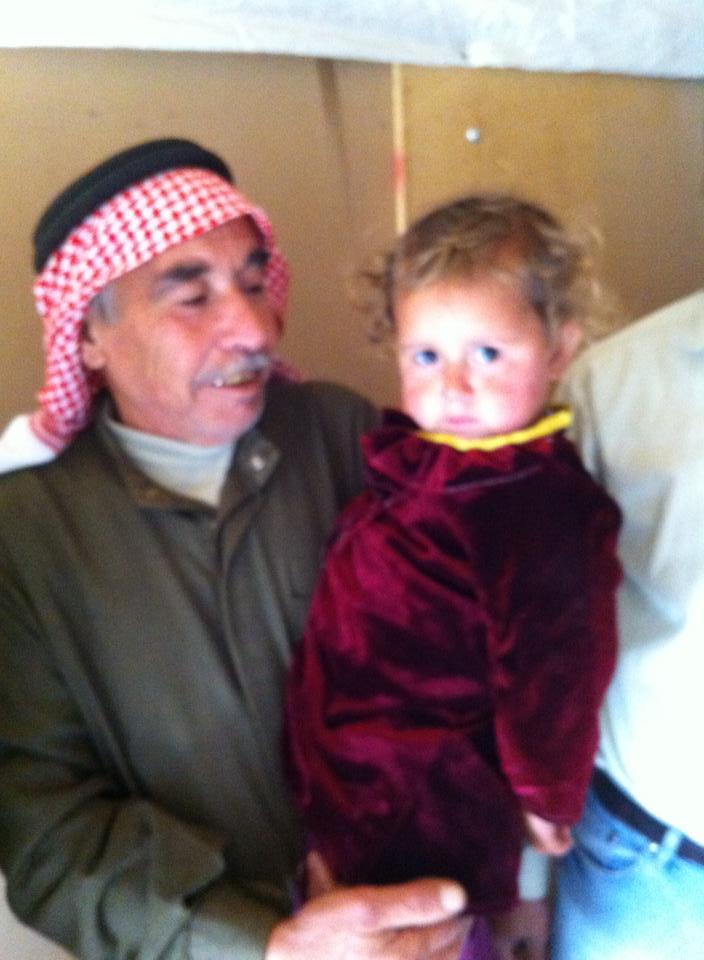
Why do I know these stories?
Because I was visiting them through an organization that believes foremost that dignity comes through listening and relationships.
In 2006, as the Israeli-Hezbollah conflict deepened and the suffering mounted, Camille Melki faced a choice. He could remain at his seminary, and produce good preachers. Or, he could practice what he preached.
He chose the latter, and founded Heart for Lebanon (H4L). By his own admission, he wasn’t quite sure what he was doing, only that he had to act. Three pastoral instincts guided the start-up of H4L. First, he would listen to the stories of the afflicted, while assessing the need. Second, there would be no conditions about who would receive aid. His faith commanded him to love his neighbor, no matter what they believed. And third, for those recipients who wanted a relationship, he would be their friend.
In July of 2012, Camille felt another nudge. The Syrian crisis was spreading and more and more Syrians were fleeing into Lebanon. Again, he wasn’t quite sure how he was going to do it, let alone pay for it. But he felt that he could help Syrian families stay together, providing them with key essentials to get through each month (from food staples and detergent to mattresses and winter clothing). Heart for Lebanon began serving 200 families.
Today Heart for Lebanon is serving 1300 Syrian families in the Bekaa Valley, working in 13 camps in the valley. In the south of Lebanon near Tyre, they are serving an additional 700 Syrian families. 70% of these Syrian families in both places are Muslim.
With the worsening of the ISIS crisis in Iraq, Heart for Lebanon dared to do the same thing again. It is now serving 800 Iraqi families in the greater Beirut area (70% of whom are Christian).
While visiting a Bekaa Valley school yesterday, I was surrounded by a swarm of smiling kids. They were all Muslim, Arab or Turkmen. And all would be on the street begging…if they weren’t able to come to this school.
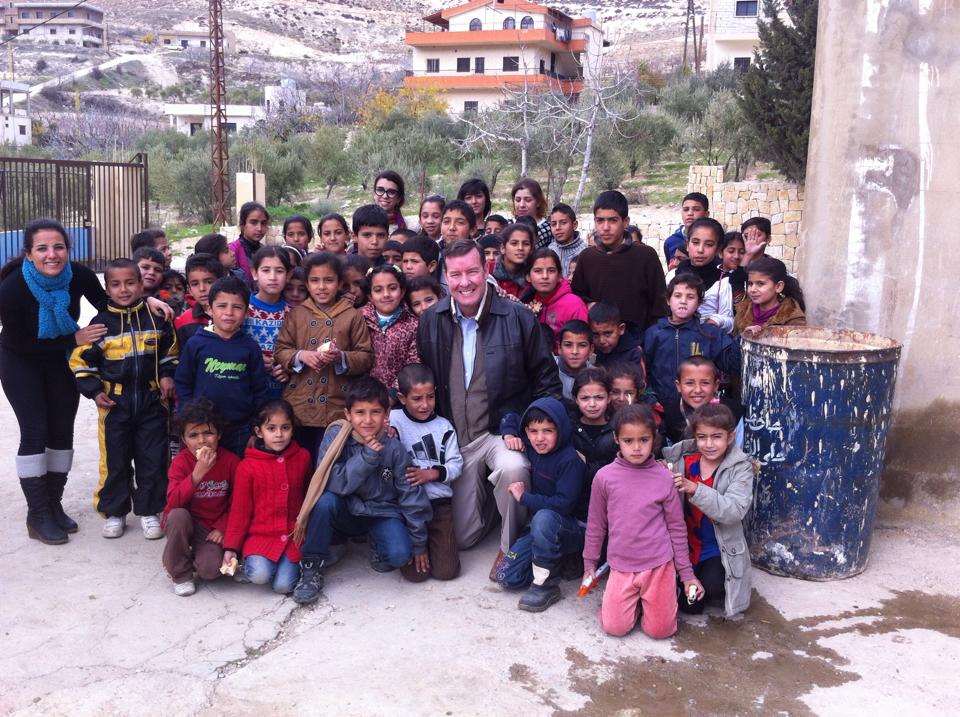
Bashir, Heart for Lebanon’s Bekaa Valley Director, went child-by-child, naming each one, telling each one’s story. All had lost at least one parent. All had seen things—from beheadings to kidnappings—that no child should ever see. And all of them knew Bashir by name.
I looked at him. “We are here to listen to them.”
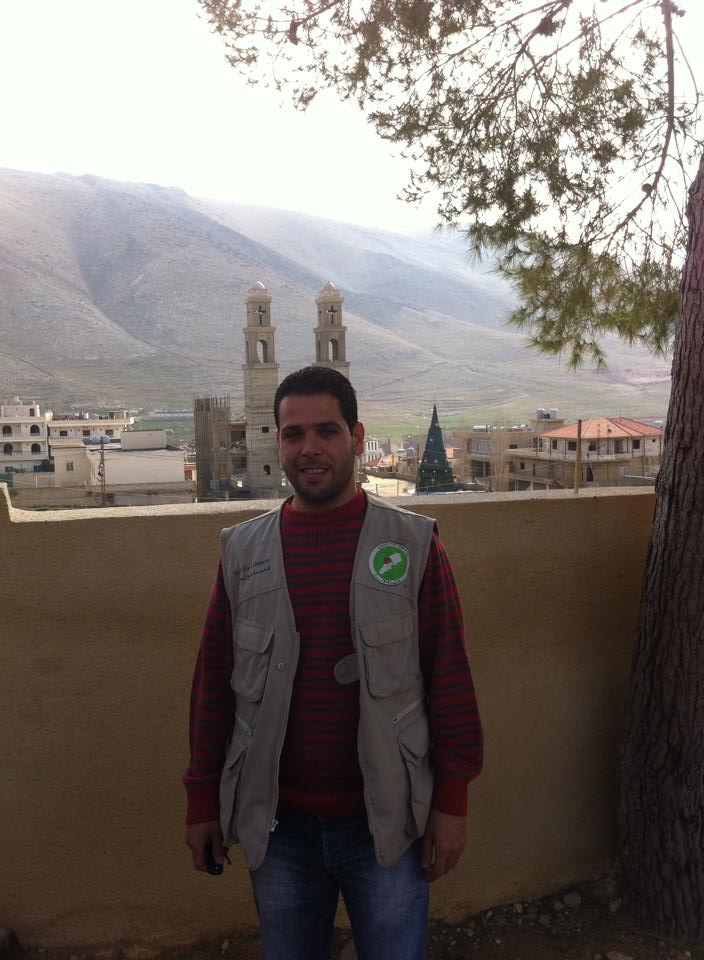
Relief can be delivered in many good ways. Likewise, to begin healing the trauma of war can take many forms. I can think of no better way to begin both than to listen—first and always—while providing for a neighbor in a time of need.
In other words, listening begins the recovery of dignity. Hearing someone’s story means that s/he is of equal value to you; that you understand where they are coming from (literally in the case of refugees); that you care.
Listening is a ministry of precious presence.
Listening also takes time. Over time, listening builds relationships. Relationships create the opportunity to truly assess the physical and emotional state of an individual, family, and/or community (in a non-intrusive manner). Such assessments, in turn, provide a practical roadmap for efficient and effective relief…as the manner of rescuing refugees from danger, simultaneously begins the process of restoring them.
Enduring organizations are always ensuring three things; that: 1) they know who they are; 2) they govern that identity in how they do things; and, 3) they demonstrate that identity in what they do, by doing it excellently. The metric is the next generation of leaders within the organization.
At Heart for Lebanon, the next generation is unapologetic about its faith; they are unafraid to listen to neighbors of all faiths/none, building relationships with them in order to unconditionally serve them better; and they execute with excellence.
Heart for Lebanon is a world class outfit, and I encourage you to pray for and support them, as they serve Syrian and Iraqi refugees in such a mutually transformative manner.